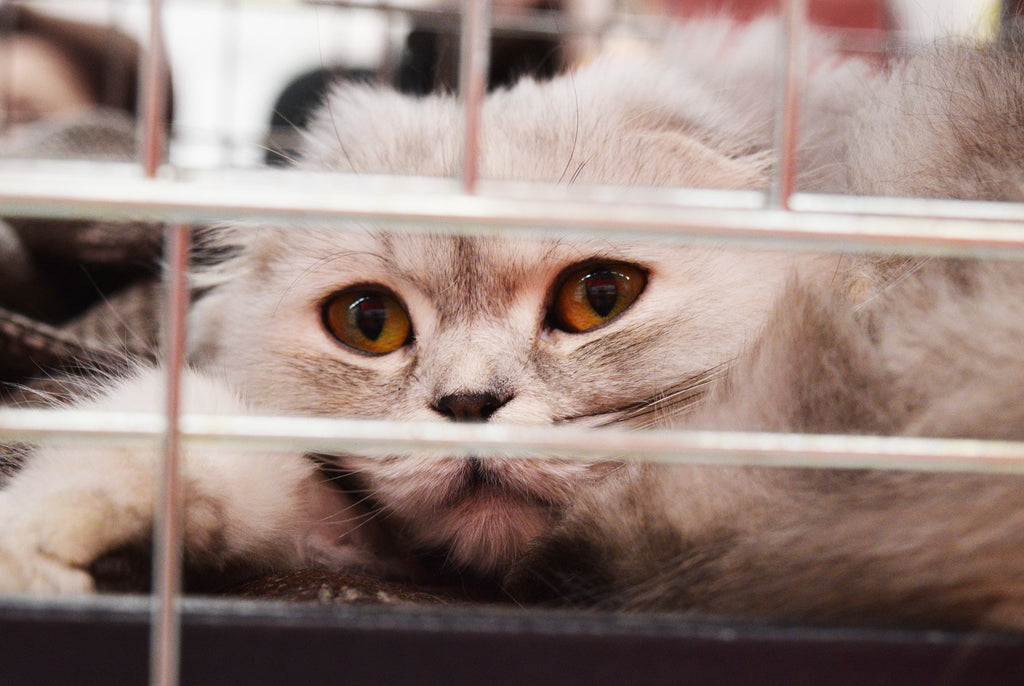Many animal rescue shelters rely on fosterers to provide temporary homes for the animals in their care. The volunteer role of a fosterer is a crucial one and can make a huge difference to the rehabilitation of an animal and their chances of finding a forever home. Fostering an animal can help them recover from neglect, abuse, illness or injury and turn their lives around. There are many different reasons why an animal may need to be fostered - some animals need one-to-one care or perhaps don't cope well in an animal centre environment and some animals are involved in a prosecution case if legal action is being taken against their previous owner which means they stay in the care of the shelter for longer.
Fostering an animal not only helps to improve that animals life, it also helps to free up space at the rescue centres so that more animals can be helped. As well as providing a lifeline to these animals, fostering also provides an excellent opportunity for people who would normally be unable to take in an animal long term, due to other commitments, with an alternative way to have a pet in their life. In most cases you won't need to pay a penny either, as vet bills plus equipment and even food costs are covered, allowing you to care for a pet even if you wouldn't usually be able to afford to. Of course, fostering is still a big commitment, and not something to be undertaken lightly. But if you decide it's right for you, there are plenty of organisations in need of fosterers for the pets in their care. There are also projects which help find temporary homes for pets belonging to families fleeing domestic abuse, until they can be reunited.

So, what does fostering involve?
In short, you'll be looking after an animal in your home temporarily, until the charity finds them a forever home. Fostering involves all the usual care you'd give your own pet like feeding, playing, cleaning out litter trays/hutches etc. The hard part is that you'll need to be able to let your new friend go when they get adopted, which can be difficult once you've got attached, so fostering isn't for the faint-hearted. Remember though, you're helping pets find safe and loving homes and, while it may be tempting to adopt a pet you've grown attached to, you'll likely be able to help more animals if you continue fostering.
The amount of time you'll have any one pet in your home can vary, as it often depends on how quickly they find their forever home – it could be days, weeks or months. But charities will usually make arrangements if you need to temporarily stop fostering if you're going away on holiday etc. If you've been fostering for a while and don't feel able to continue, charities will normally be able to find an alternative home for the pet so you should never feel that you're stuck in an open-ended commitment. While the point of fostering is that it's a temporary commitment, if you really can't bear to say goodbye then in some cases it is possible to permanently adopt the pet in your care. Don't assume you'll definitely be able to do this though, as some charities won't let you keep an animal if someone else has already asked to adopt.
While many charities have had to put recruitment of new fosterers on pause due to lockdown, some are accepting new foster carers again. The recruitment process may have changed slightly due to coronavirus restrictions – for example, you may have an interview over the phone or the internet and instead of someone from the charity visiting your home to check it's suitable for an animal, they may ask you to send photos or video of your house/garden.

We recently chatted with long-time Thanet-based fosterer, Kayleigh Herring, who fostered an incredible 84 cats last year alone! She said;
"My parents took in animals when I was a child so I have always fostered really. To become a fosterer you need to be prepared for a lot of extra work, sleepless nights and heartache but it’s all so worth it! The biggest challenge is always when they go to the new homes - you don’t stop worrying about them even when they are gone! I fostered a dog called Buster who had been starved it was amazing he even survived and he will stay in our hearts forever."

If you think that pet fostering is for you, here are some UK charities that may be looking for fosterers:
- RSPCA - foster cats, dogs or horses
- Blue Cross - foster dogs, cats, horses, guinea pigs, rabbits etc
- Dogs Trust - foster dogs only
- Freedom Project - run by Dogs Trust, foster dogs for those fleeing domestic abuse
- Cats Protection - foster cats only
- Paws Protect - run by Cats Protection, foster cats for those fleeing domestic abuse
- Battersea - foster dogs and cats
- Guide Dogs - foster dogs only
We also recommend checking smaller rescue centres local to you as they are often the most overlooked and the most in need. If you are local to Kent, try:
- Last Chance Animal Rescue - foster dogs, cats and rabbits
- Guardian Angels Dog Rescue - foster dogs only
- Futures For Dogs - foster dogs only
- Cats in Crisis - foster cats only





